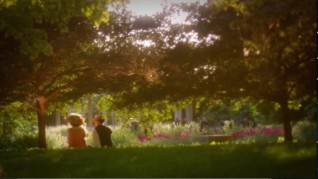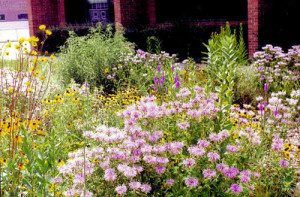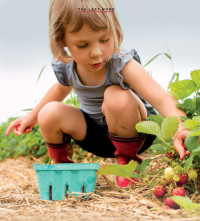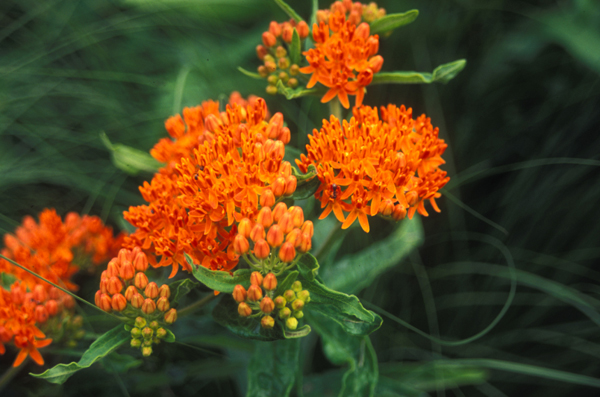Interview by Laurie Casey
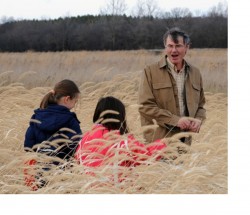
Stephen Packard is for the birds. And we mean that in the best possible way. The founding director of Audubon Chicago Region and one of the most highly respected nature advocates in the Midwest will appear at Dominican University on Sunday, January 19, to speak about growing native plants in your yard to enjoy more visits from birds.
Stephen Packard has guided some of Illinois’ largest ecological restoration projects, assembled thousands of volunteers through his work with Illinois Nature Conservancy and Audubon, and founded some of our most important conservation institutions, including Chicago Wilderness and Friends of the Forest Preserves.
He has also experimented in his own Northbrook backyard for decades. His yard has become a sanctuary not only for an array of bird species, but also for his human neighbors, who enjoy hours of discovery and fulfillment.
Continue reading this illuminating interview with Stephen Packard.
Ultimately his goal is to help North America's bird populations, some of which desperately need human help to survive in the face of habitat destruction, global climate change and pesticides. We talked about the field of restoration ecology, why the work of habitat restoration demands a combination of patience and urgency, and what you can do in your own yard and beyond to support endangered wildlife.
Q: What is the field of ecological restoration?
S.P.: A journalist once asked one of our restoration volunteers, "What's the difference between restoration and gardening?" She answered, "With gardening, the fundamental principal is control. With restoration, it's surrender." We use a lot of the same techniques as gardening, but with restoration, you see yourself as a coach, not a boss. Things move in directions you're not expecting, and that's what exciting about it. You know you've succeeded when diverse plants and animals can reproduce and evolve their community mostly on their own. On the other hand you don't want a weed patch. Weeds do not form stable communities. They do not promote diversity.
Q: You sound like you are a patient man. Are you?
S.P.: You have to combine enormous patience with urgency. For the large number of endangered plants and animals that are barely hanging on, there is urgency to figure out what they need and provide it for them. Much of what we do takes many years to produce the results we're looking for—or the ones we're not looking for. Many plants take three to five years to grow big enough to flower and grow seeds big enough to plant.
Q: Tell us about your yard.
S.P.: I have a typical suburban lot, and it backs up to a forest preserve. A large part of my front and back yard is wild native plants. My neighbors like it. I get a lot of compliments. I was deliberate and slow about expanding it, and I made sure there were plenty of colorful flowers. In the front yard, all of my beds have mowed grass around them. In the backyard, my neighbors have encouraged me to expand into their yards. Many of them are also planting native patches in their yards. I always make sure we have plenty of milkweeds, which provide habitat for monarch butterflies. Most of the kids on my street, for a year or two of their childhoods, have raised monarchs from my yard. Here in wintertime, I see cardinals, chickadees, blue jays and juncos. In summertime, indigo buntings from the adjacent forest preserve nest here.
Q: What advice do you give to people who are intrigued by habitat restoration and would love to do this in their yards, but don't know where to start?
S.P.: If you are excited about attracting certain butterflies, put in the plant species they like. Start small, and advance year after year as you learn how things work in the soil, light and drainage you have.
Q: What are three things people don't know about Chicago wildlife?
S.P.: During spring migration time, birds come from tropical rainforests up to the Canadian tundra. This powerful force comes right through your yard every spring and fall! I strongly encourage people not to use insecticides, especially during migration season. Birds are totally vulnerable and have gone through so much to survive. If they die up here by eating a poisoned insect, it's such a sad thing. Second, plant seeds when they're ripe. Don't hold them until next spring. The seeds of wild plants are designed not to dry out, but to stay in soil over winter and then germinate in the spring. Finally, wildlife likes yards that are messy. When vegetation dies in the fall, leave it over winter. It will be full of birds and rabbits and voles. Think about how to design your garden so that the dead vegetation will be aesthetically pleasing.
Q: How can people who don't have a yard get involved?
S.P.: Visit habitatproject.org to learn about volunteering in public land wildernesses, the forest preserves and parks. Many people raise plants and donate seeds to habitat restoration projects on public lands.
Q: After more than 30 years in this field, are you still learning?
S.P.: One of the things that I'm continually impressed by is how long the processes are. We have planted areas in restoration projects and carefully monitored their diversity, and 30 years later the diversity is still increasing! The portion of rare plants is still increasing! Some plants that seem not to have done well show up 10 or 20 years later! Other new plants keep showing up; likely some bird has brought seed on their feet or the seed has blown in on a whirlwind. Sadly, last year, none of the monarchs in my yard survived, even the eggs we brought inside. There's something wrong. The adults laid eggs, and the eggs didn't hatch. Some of this is likely because there are new chemical insecticides being used. We've been raising monarchs for 15 years, and we've never seen this. If you are consistent for a long period of time, you learn things just because you notice changes.
You can meet Stephen Packard in person and hear more on January 19, 2014, from 2:30 pm to 4:30 pm in The Priory Room, Room 259, at Dominican University. The talk, hosted by West Cook Wild Ones, is free and open to the public, so bring a friend!
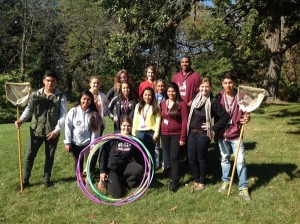 students are hosting a series of webinars with professionals from all over the country September 22 through 26, 2014. This project, "by students, for students," aims at raising awareness about the importance of biodiversity. http://nationalbiodiversityteachin.com/
Biodiversity...it's a term that's not used very much in the mass media, but it's so important to our planet and our own species' future. These kids recognize that, and want to help by putting on a virtual "teach-in" for other students at other schools. Their goal is for 10,000 students across the country to participate.
students are hosting a series of webinars with professionals from all over the country September 22 through 26, 2014. This project, "by students, for students," aims at raising awareness about the importance of biodiversity. http://nationalbiodiversityteachin.com/
Biodiversity...it's a term that's not used very much in the mass media, but it's so important to our planet and our own species' future. These kids recognize that, and want to help by putting on a virtual "teach-in" for other students at other schools. Their goal is for 10,000 students across the country to participate.


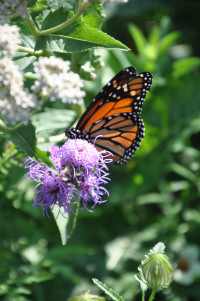
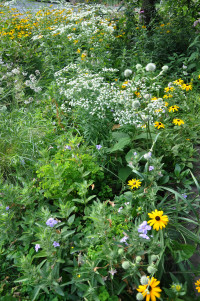
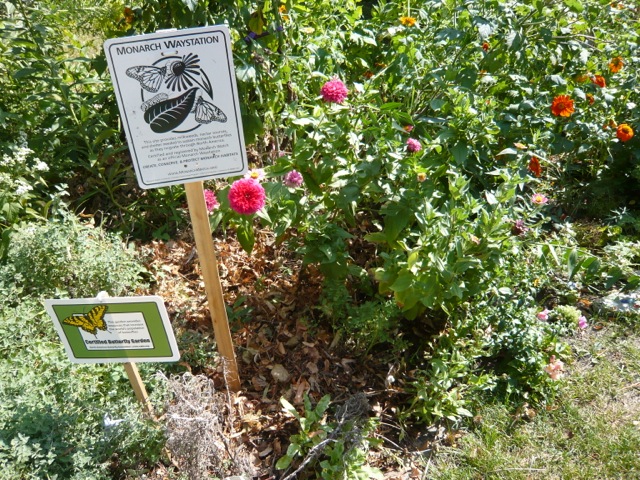
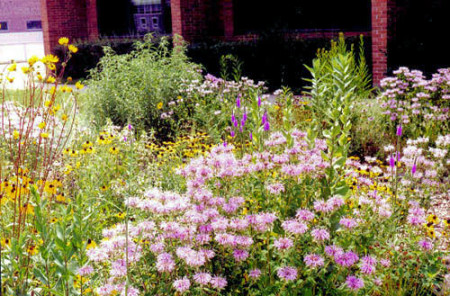 Starter Garden
Starter Garden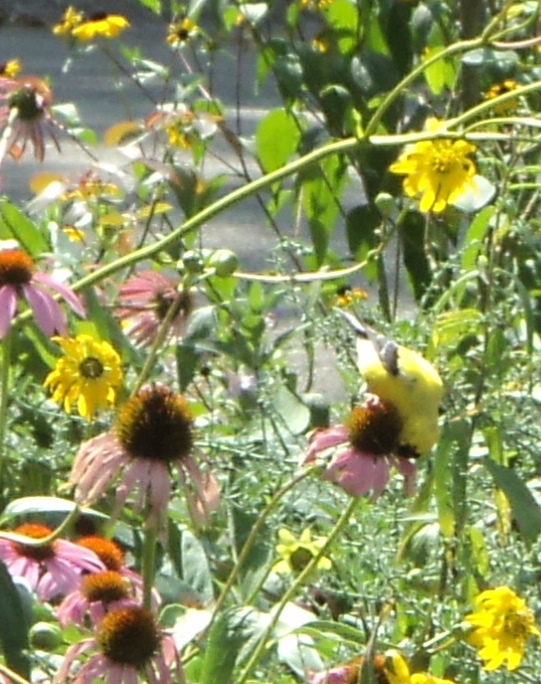 1. You’d like to lead people through your garden;
1. You’d like to lead people through your garden;
